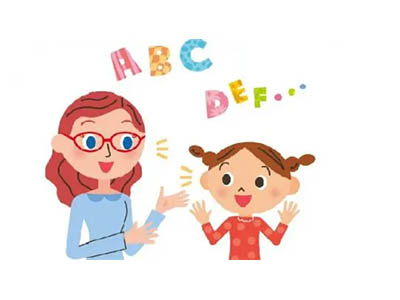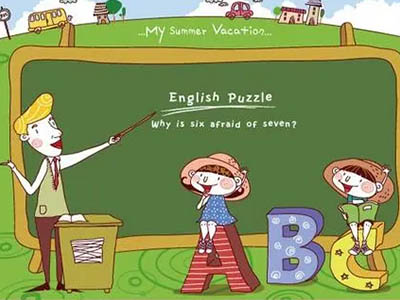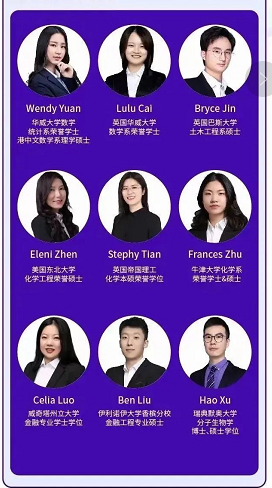
马上就要迎来了秋季大考了,同学们都做好了复习的准备了吗?本期我们想给大家聊聊Alevel英语如何拿高分的事情。在Alevel英语中修辞手法的应用是非常重要的,在英国国际学校早期的写作课堂中涉及到的修辞就包含有:明喻,暗喻,拟人,夸张和拟声拟态词汇。

Simile(明喻)
是以两种具有相同特征的事物和现象进行对比,表明本体和喻体之间的相似关系,两者都在对比中出现。
常用比喻词like, as, as if, as though等 For example, As cold waters to a thirsty soul, so is good news from a far country./ This elephant is like a snake as anybody can see.
Metaphor:(暗喻)
这种比喻不通过比喻词进行,而是直接将用事物当作乙事物来描写,甲乙两事物之间的联系和相似之处是暗含的。
For example, the world is a stage./ The diamond department was the heart and center of the store.
Analogy(类比)
It is also a form of comparison, but unlike simile or metaphor which usually uses comparison on one point of resemblance, analogy draws a parallel between two unlike things that have several common qualities or points of resemblance.
Personification (拟人)
It gives human form of feelings to animals, or life and personal attributes(赋予) to inanimate(无生命的) objects, or to ideas and abstractions(抽象).拟人(personification)这种修辞方法是把人类的特点、特性加于外界事物之上,使之人格化,以物拟人,以达到彼此交融,合二为一。
1、She may have tens of thousand of babies in one summer.(From“ Watching Ants”) 一个夏天她可能生育成千上万个学员。
这里用“she”和“babies”把蜜蜂比作人类妇女的生育。 For example, the wind whistled through the trees.
Hyperbole: (夸张)
It is the deliberate use of overstatement or exaggeration to achieve emphasis. 夸张(hyperbole)这是运用丰富的想象,过激的言词,渲染和装饰客观事物,以达到强调的效果。
My blood froze. 我的血液都凝固了。For instance, he almost died laughing.
Understatement (含蓄陈述)
It is the opposite of hyperbole, or overstatement. It achieves its effect of emphasizing a fact by deliberately(故意地) understating it, impressing the listener or the reader more by what is merely implied or left unsaid than by bare statement. For instance, It is no laughing matter.
Euphemism (委婉)
It is the substitution of an agreeable or inoffensive(无冒犯) expression for one that may offend or suggest something unpleasant. For instance, we refer to "die" as“ pass away".
Metonymy (转喻) It is a figure of speech that has to do with the substitution of the mane of one thing for that of another. For instance, the pen (words) is mightier than the sword (forces).
metonymy(借代)
是指两种不同事物并不相似,但又密不可分,因而常用其中一种事物名称代替另一种。
1、Several years later, word came that Napoleonyh himself was coming to inspect them... 几年以后,他们听说拿破仑要亲自来视察他们。 “word”在这里代替了“news, information”(消息、信息)

2、Al spoke with his eyes,“yes”. 艾尔用眼睛说,“是的”。 “说”应该是嘴的功能,这里实际上是用眼神表达了“说话的意思”。
Synecdoche (提喻) It is involves the substitution of the part for the whole, or the whole for the part. 提喻(synecdoche)又称举隅法,主要特点是局部代表全体,或以全体喻指部分,或以抽象代具体,或以具体代抽象。 1、The Great Wall was made not only of stones and earth, but of the flesh and blood of millions of men. 长城不仅是用石头和土建造的,而且是用几百万人的血和肉建成的。 句中的“the flesh and blood”喻为“the great sacrifice”(巨大的牺牲) For instance, they say there's bread and work for all. She was dressed in silks.
Antonomasia (换喻)
It has also to do with substitution. It is not often mentioned now, though it is still in frequent use. For example, Solomon for a wise man. Daniel for a wise and fair judge. Judas for a traitor.
Pun(双关语)
It is a play on words, or rather a play on the form and meaning of words. 双关语(pun)是以一个词或词组,用巧妙的办法同时把互不关联的两种含义结合起来,以取得一种诙谐有趣的效果。
Napoleon was astonished.”Either you are mad, or I am,”he declared. “Both,sir!”cried the Swede proudly. “Both”一词一语双关,既指拿破仑和这位士兵都是疯子,又指这位战士参加过拿破仑指挥的两次战役。 For instance, a cannon-ball took off his legs, so he laid down his arms. (Here "arms" has two meanings: a person's body; weapons carried by a soldier.)/ Napoleon was astonished.”Either you are mad, or I am,”he declared. “Both,sir!”cried the Swede proudly. “Both”一词一语双关,既指拿破仑和这位士兵都是疯子,又指这位战士参加过拿破仑指挥的两次战役
Syllepsis(一语双叙)
It has two connotations. In the first case, it is a figure by which a word, or a particular form or inflection of a word, refers to two or more words in the same sentence, while properly applying to or agreeing with only on of them in grammar or syntax(句法).
For example, He addressed you and me, and desired us to follow him. (Here us is used to refer to you and me.) In the second case, it a word may refer to two or more words in the same sentence. For example, while he was fighting , and losing limb and mind, and dying, others stayed behind to pursue education and career. (Here to losing one's limbs in literal; to lose one's mind is figurative, and means to go mad.)
Zeugma (轭式搭配) It is a single word which is made to modify or to govern two or more words in the same sentence, wither properly applying in sense to only one of them, or applying to them in different senses. For example, The sun shall not burn you by day, nor the moon by night. (Here noon is not strong enough to burn)
Irony (反语) It is a figure of speech that achieves emphasis by saying the opposite of what is meant, the intended meaning of the words being the opposite of their usual sense.反语(irony)是指用含蓄的褒义词语来表示其反面的意义,从而达到使本义更加幽默,更加讽刺的效果。
一般英国大学喜爱学员修读传统的ALevel科目,如数学、物理、化学、经济、生物、英国文学等。但是决定最终是否能够进入面邀的还是你的标化学术成绩,所以同学们基本上3A是最基本的。马上就要到Alevel考试季了,想要Alevel化学拿高分吗?那就来唯寻的Alevel课程班吧,唯寻给你意想不到的惊喜。赶紧点击【预约试听】报名吧!

点击
Alevel英国文学与Alevel英语语言文学区别在哪?英国大学更喜欢哪门呢?答案一定在你的意料之外
2020最受英国中学员欢迎的Alevel英语文学课外书籍推荐 这些英文小说符合你的口味吗
查看。

学习有方法,成长看得见
筑梦牛剑/G5/常春藤
